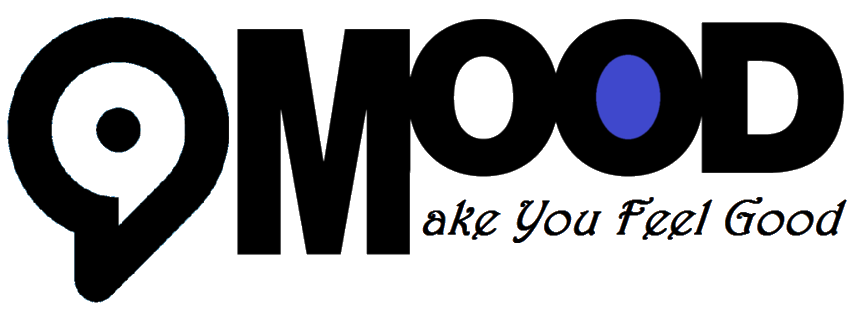You live in a fast-paced world, and you must be productive. This seems like an overwhelming task, right? Either you are juggling multiple projects, trying to meet deadlines, or trying to manage your work-life balance, the overall pressure can be immense!

Psychology research, neuroscience, and behavioral science have already uncovered a range of strategies that can significantly boost productivity. These science-backed productivity hacks focus on working smarter, improving focus, and better managing energy.
Let's explore them, and I am sure that it will help you get more done, stress less and feel more accomplished.
1. Power of the Pomodoro Technique
Most popular and well-known productivity hack is the Pomodoro Technique for good reason. According to research and studies, if you are working in short bursts, typically 25 minutes by following a 5 minute break — then you can focus much on productive work and reduce burnout from your running task.
This method is based on “ultradian rhythms” — which are natural cycles of rest and alertness for your body. If you are using this concept, you can maximize your efficiency, and accuracy to the next level, which will help you to avoid mental fatigue. After completing 4 pomodoros, you can take a longer break to recharge your mind.
You may like my article 👇- Where I coded a pomodoro calculator for you. 🥳
2. Prioritize Your Tasks with the Eisenhower Matrix
The Eisenhower Matrix looks so simple, but trust me — it is a more powerful tool that helps you organize your daily tasks based on importance, urgency, and priority.
You just need to categorize your daily tasks into 4 quadrants —
- Urgent and Important
- Important but not urgent
- Urgent but not important
- Neither Urgent nor Important
After that, you can quickly identify what requires your immediate attention, what can be done quickly, and what can be postponed. Using this technique — you can prevent the trap of focusing on trivial tasks while the important ones fall by the wayside or distractions.
3. Sleep is Your Secret Weapon
You already know how to sleep; But In case you want to sleep quickly — just like Nobita (from Doraemon Cartoon Series), you need to take deep breath 6–7 times. Once you inhale and exhale much, you will fall asleep around 10–12 inhales-exhales. Trust me — it works for me and my family, so it must work for you too!
Sleep is playing an important role for productivity, research and studies have shown that a well-rested brain is more effective at decision making, problem-solving, and also for creative thinking. You should aim for enough sleep for 7–9 hours per night to improve your cognitive functions and memory retention.
Manage your quality sleep schedule in a better way that helps you regulate your circadian rhythm, leading to better energy levels throughout the day.
4. Use the Two Minute Rule
Productivity expert David Allen suggested a two-minute rule. It helps to tackle procrastination. Here is the rule information — if a task can be completed in 2 mins or less, do it immediately. This method helps you reduce piling up with your tasks and avoid unnecessary stress, It should eliminate small tasks that can clutter your to-do list with proper focus on your significant projects.
5. Learn to say ‘No’ — when required
If you are working at the office and if your boss asks for more commitments in less time, simply say “NO” with a proper justification.
I saw many people struggling with productivity because they take on too many tasks or workload, and at the end they are suffering by working day and night to achieve the deadlines. If you could say ‘No’, it is crucial for protecting your time and energy.
As per research, if you are being selective about your commitments, you can allocate your time to the most impactful activities.
6. Harness the Power of “Deep Work”
Cal Newport, a computer science professor, coined the term “Deep Work,” which refers to long periods of focused, uninterrupted work. Neuroscientific research shows that our brains function best when we can concentrate on one task for extended periods. In contrast, constant multitasking reduces cognitive performance. By scheduling time for deep work, you can produce higher-quality results in less time. Aim for distraction-free environments and try to engage in deep work during your peak cognitive hours.
7. Practice Mindfulness to Enhance Focus
Mindfulness practices, such as meditation, have gained popularity in recent years, and science backs their effectiveness for improving productivity. Studies show that mindfulness training can increase attention, reduce stress, and improve cognitive flexibility. Even just a few minutes of mindfulness each day can help you stay focused, reduce distractions, and make better decisions. Start by practicing simple deep-breathing exercises or meditation to clear your mind and prepare for deep work.
8. Set Specific, Measurable Goals
Setting clear and specific goals is one of the most effective ways to stay motivated and focused. Research has shown that people who set well-defined goals are more likely to achieve them because they provide clarity and direction. Instead of vague goals like "be more productive," try setting specific objectives like "finish the first draft of the report by 3 p.m." When goals are measurable, you can track your progress and stay on course. Break larger projects into smaller tasks and celebrate each achievement along the way.
9. Take Advantage of Technology
While technology can sometimes be a distraction, it can also be a valuable tool for enhancing productivity. Use apps like task managers, calendar tools, and focus timers to stay organized and on track. For instance, using a digital calendar to schedule your day ensures you allocate enough time for important tasks and breaks. There are also several apps designed to limit distractions, such as website blockers, that can help you stay focused during deep work sessions.
10. Exercise Regularly to Boost Brain Function
Physical exercise has long been known to improve overall health, but did you know that it can also boost your productivity? Research indicates that regular physical activity increases blood flow to the brain, enhancing cognitive function, memory, and creativity. Even short bursts of exercise, like a brisk walk or a few minutes of stretching, can give you a mental boost. Incorporating regular exercise into your routine helps improve focus, reduces stress, and elevates your mood—making it easier to stay productive throughout the day.
Conclusion
Boosting productivity is not just about working harder, it's all about working smarter. You can start using any one or two strategies above that fit with you and gradually build upon them.
After some time, you will find that you are not only getting more done but also enjoying the process. Always use the right tools, mindset, habits and thought process. You can unlock your full potential to achieve more with less stress.
©️This article is originally published on Medium by Author Rakshit Shah 2025.
Discover more from 9Mood
Subscribe to get the latest posts sent to your email.



























0 Comments